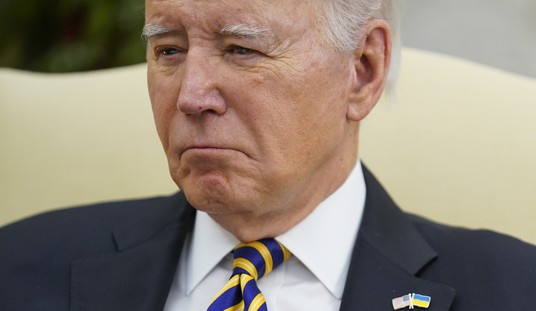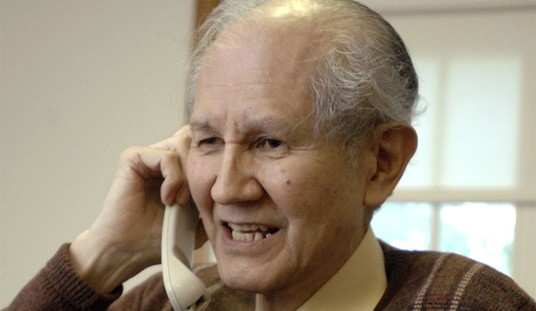Perhaps history imitates art. At the very least it sometimes anticipates it. In 1898 author Morgan Robertson wrote a novella called Futility, which was about of all things, a ship called the Titan striking an iceberg in the Atlantic and sinking with great loss of life, due to a shortage of lifeboats. And then there was the 1994 Tom Clancy novel Debt of Honor, which amused readers with the absurd idea of suicide pilots flying airliners into American landmarks and buildings.
People stopped being amused at the idea after September 11. But at least one prediction in the book never happened: the takeover by America’s enemies of Guam in the Marianas island. But it may happen yet. “The Guam Election Commission proposes to conduct a vote on Guam’s “self-determination” of its future relationship with the United States. The commission has rejected voter-registration forms filed by white citizens on racial grounds.” It is now the subject of a lawsuit, Davis vs Guam.
But what is most interesting about the suit are the emerging but tenuous connections between between “decolonization” and the Chinese and Cuban diplomatic efforts. The UN Special Committee on Decolonization issued this report:
Special Committee on Decolonization Urged to Visit Guam as Petitioners.
Deplore Militarization of Non-Self-Governing Territory
Speaking out against the militarization of Guam by the United States, several petitioners today called upon members of the Special Committee on Decolonization to visit the Non-Self-Governing Territory and see the situation for themselves as soon as possible.
Many called attention to the release of an 11,000-page draft environmental impact statement by the United States, which the people of Guam had been given 90 days to study and comment on. Hope Antoinette Cristobal urged the Special Committee to study the document, which was “in direct violation of various international human rights instruments, including United Nations resolutions and declarations”.
Rima Ilarishigh Peter Miles, speaking on behalf of Women for Genuine Security, noted that United States Navy activities carried out on the island had gravely impacted the environment, human health and the welfare of the territorial government. Considering such challenges, she stressed the position that “the United States does not care what it destroys as long as no one knows about it”.
Asserting that the United Nations must not allow negative impacts to further block the process of decolonization, many petitioners requested that the Special Committee declare the militarization of Guam to be a major impediment to Guam’s exercise of its right to self-determination. They also requested that the Special Committee ensure that United States congressional appropriations and other United States military projects be put on hold until past injustices were remedied, current adverse impacts were negated and the potential for future adverse impacts completely removed.
Interestingly, only the “non self governing” territories the UN committee is concerned with are those of the UK, US, New Zealand and in one case — Morocco are of concern to the World Diplomats. But none of those countries are members of the committee. Instead the fate of their oppressed territories are being studied by countries like China, Syria, Cuba, Congo, Mali, Iraq, Tunisia and Venezuela. Cuba is the vice chair of the organization. Tibet is not a territory that concerns it.
If anyone has forgotten the strategic importance of Guam it is probably only the American public. Russia knows where it is. “The Air Force confirms that two Russian bombers on Tuesday circled the U.S. island territory of Guam, prompting U.S. jets to scramble and respond. … The incident occurred shortly before President Obama delivered his State of the Union address”.
It may remind the President of the strategic importance of Guam. Or it may suggest to him a diplomatic opportunity.
What really bothers Hans von Spakovsky, writing in the National Review, is that the Obama justice department seems perfectly content to disenfranchise all non native voters in the proposed decolonization plebiscite. Hence the origin of the lawsuit:
Guam – The Guam Election Commission may be headed to court as a non-profit public interest law firm is filing suit, alleging racial discrimination due to the upcoming vote to determine Guam’s future political status. While a series of meetings and workshops on the process of decolonization were a positive step forward in Guam’s quest for self-determination, a civil suit filed by an island resident who isn’t eligible to vote could bring the process to a standstill.
The Center for Individual Rights – a non-profit public interest law firm based in our nation’s capitol, is taking the GEC and its commissioners to court. On behalf of Guam resident Arnold Davis, the CIR alleges racial discrimination after he was not allowed to register for the plebiscite because he didn’t meet the definition of a native inhabitant of Guam.
CIR president Terry Pell told KUAM News, “In our view, this plebiscite, which is going to decide or help the future of Guam’s relation to the United States, ought to be open to all registered voters of Guam, regardless of their race. That’s what the Constitution says – that’s what the law says.”
But maybe fewer and fewer care what some old law says. As others have pointed out, the Constitution is more than a 100 years old and “we won”. Clancy’s novel, however is less than 20 years old, however. The words in it may still still apply. If Guam is ‘decolonized’ its new masters will owe a Debt of Honor to whom?
In his novel Clancy wrote of the transience of territorial claims: “The businessman clapped his hands once and bowed his head, both to call the attention of the lingering spirits to his presence and to show proper obeisance to their influence over his destiny. It was fitting, he thought, that his purchase of this parcel of land now meant that 50.016% of the real estate on Saipan was again in Japanese hands, more than fifty years since his family’s death at American hands.”
But perhaps more evanescent than territory was the nature of modern money. He observed that modern money was nothing more than a signal that we all believed in.
“Money” was mainly an electronic expression, a matter of sending a message: You, First National Bank of Podunk, now have an additional three million dollars which you may lend to Joe’s hardware, or Jeff Brown’s Gas-and-Go, or for new homeowners to borrow as mortgage loans to pay back for the next twenty years. Few of these people were paid in cash—with credit cards there was less for a robber to steal, an employee…
Crashing airplanes into buildings was a scenario that eventually came true. Making money up, why, could anyone actually do that? And as to a foreign power taking over Guam … nah, that is too far-fetched.
The Three Conjectures at Amazon Kindle for $1.99
Storming the Castle at Amazon Kindle for $3.99









Join the conversation as a VIP Member